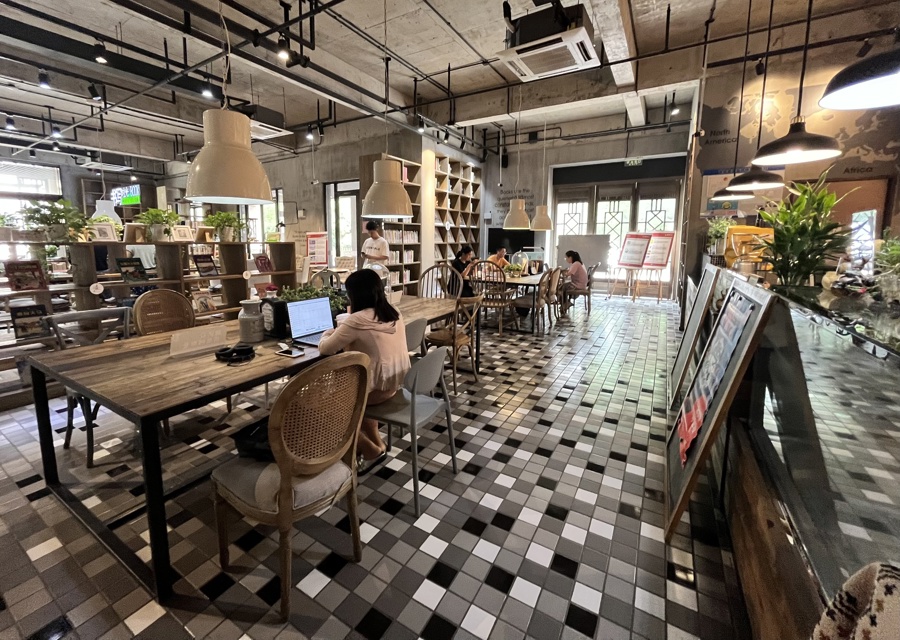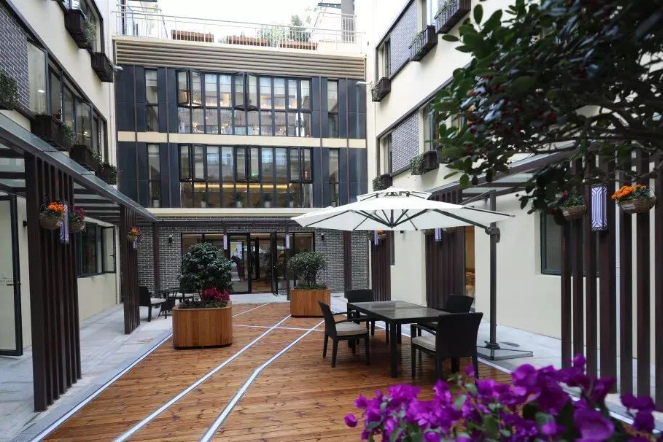15-minute service circles put daily needs within reach

In the past few years, Shanghai has doubled its efforts to provide residents easy access to a variety of services in their neighborhoods.
The so-called "15-minute community life cycles" are meant to help residents meet their needs in daily life, work, elder care and child care, among others.
The concept has been put into practice since 2019. The goal is to make such community life circles accessible to around 99 percent of the population by 2035, according to the city's master plan.
Among those who have benefited from the campaign is Zhu Yun, a mother of two children who lives in the suburban Jiading district. Zhu is a frequenter to Home Study, a library in her neighborhood.
Zhu enjoys reading cookbooks. "The instructions provided in the books are detailed, even better than some online baking tutorials," she said.
There are 30 Home Study outlets across the city, providing residents a public space for not only reading but also cultural exchanges.
In addition to the library, Zhu is also able to participate in sports at community gyms just a few minutes drive away.
The 15-minute community life circles also bring some "small and micro services" to the doorsteps of residents. At Alley No 380 on Linfen Road in Jing'an district, there is a small mobile service station that provides services such as laundry, tailoring, key cutting, shoe repairs, and knife sharpening at affordable prices.
The services are particularly popular among the senior residents of the neighborhood, where nearly half of the inhabitants are aged above 60. There is a strong demand among elderly dwellers for such small yet essential services.

Despite the progress Shanghai has made in establishing the 15-minute life cycles, the city still faces the challenges of ensuring the sustainable operation of the community services and improving service quality.
The Home Study libraries, for instance, are popular with locals because readers are able to borrow books from the city's public libraries and return them at any nearby Home Study outlet.
But, for many similar reading spaces that have mushroomed across the city — some having been opened in rural areas — incorporating them into the public library system remains a daunting task.
Additionally, for the highly popular "youth night schools" and community gyms, sustainable operation hinges on striking a delicate balance between financial viability and affordability.
No pricing standards exist for public welfare courses. If prices are set too high, course organizers will risk losing some customers to for-profit organizations in the market.
A young office worker told Jiefang Daily: "The painting class in a nearby youth night school costs 70 yuan ($9.6) per session, plus a 90-yuan fee for painting materials. My colleagues and I think it is a bit expensive."
It remains a test for the government to better mobilize and coordinate resources to ensure sustainable development of the community service facilities. More professional forces, including institutions of higher learning, social organizations, and market entities, are expected to inject more vitality to the 15-minute community life circle campaign.
Source: Jiefang Daily



 Subscribe
Subscribe













